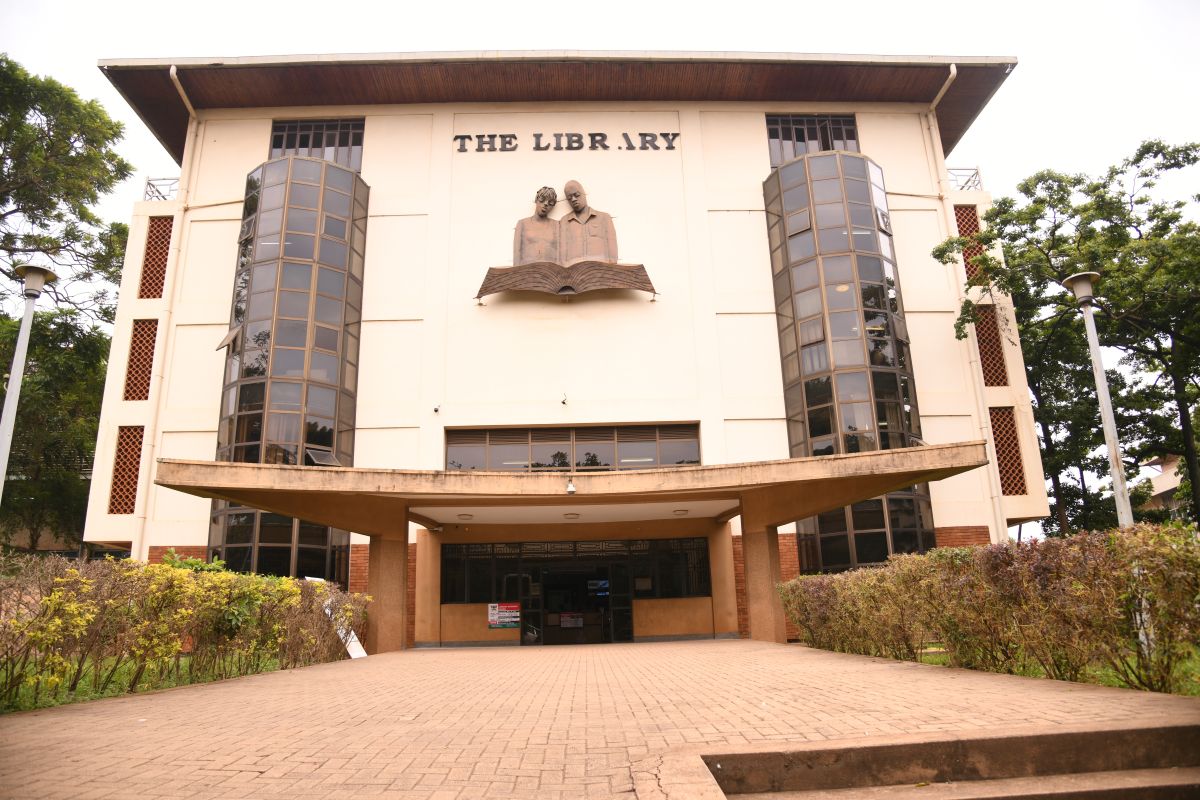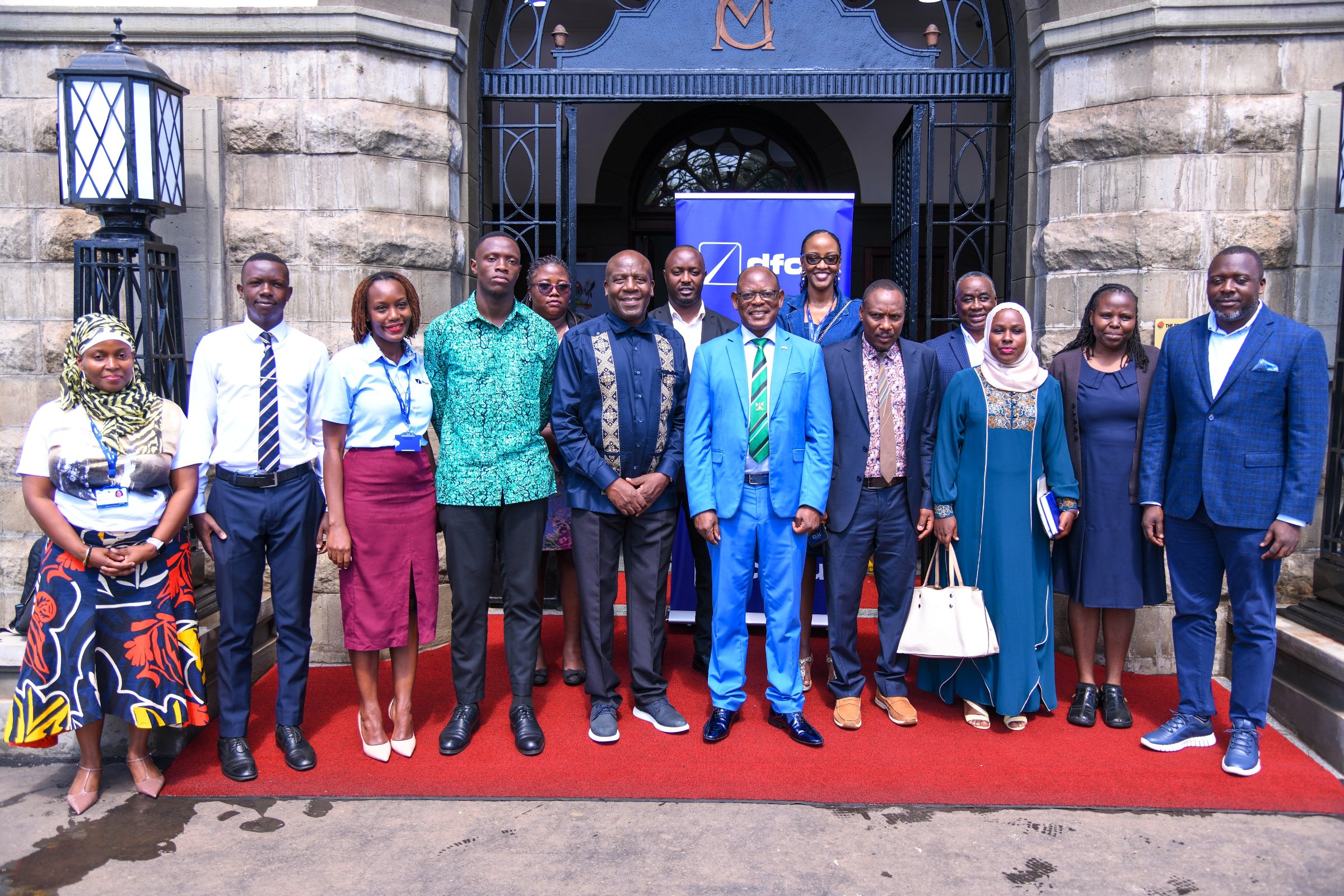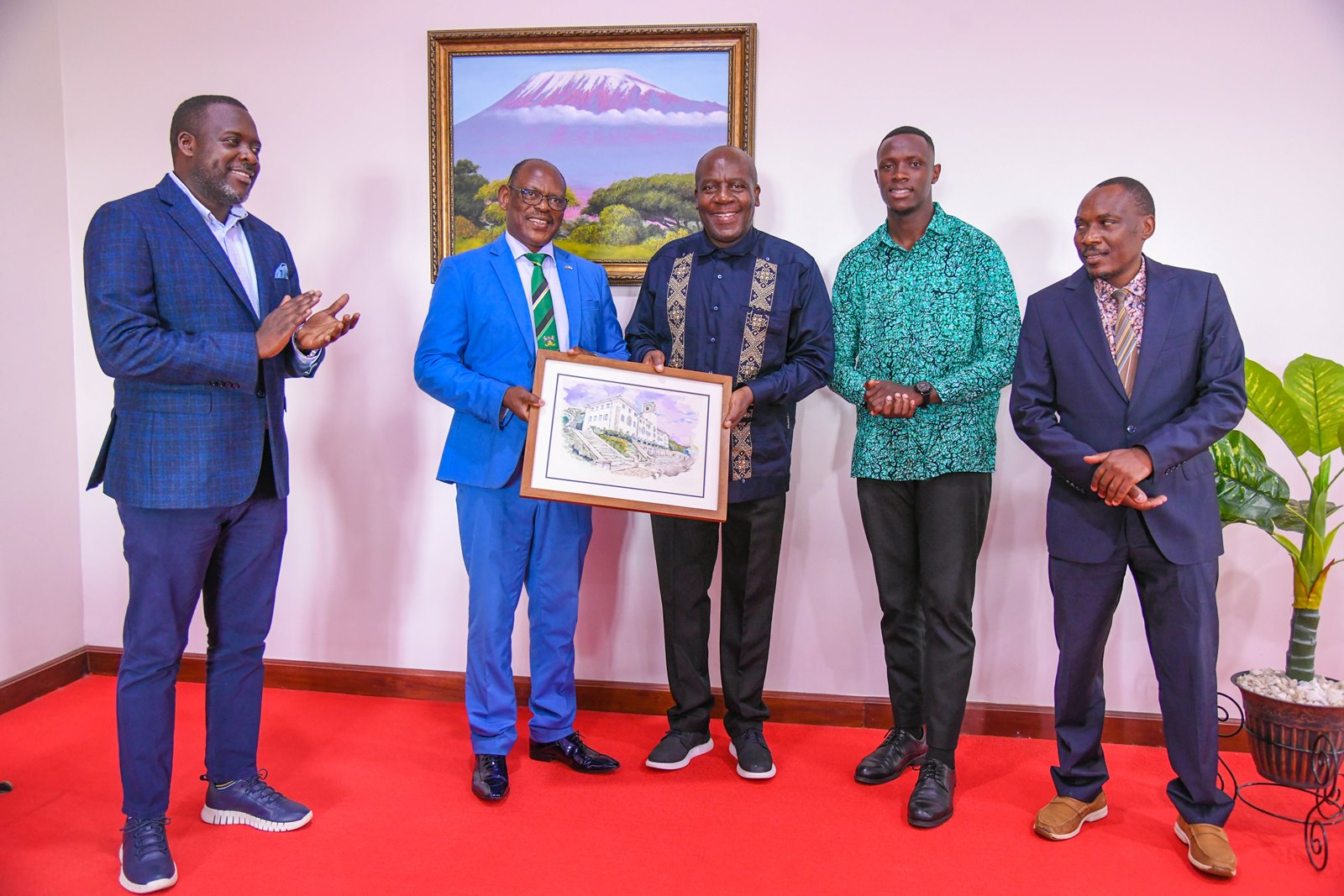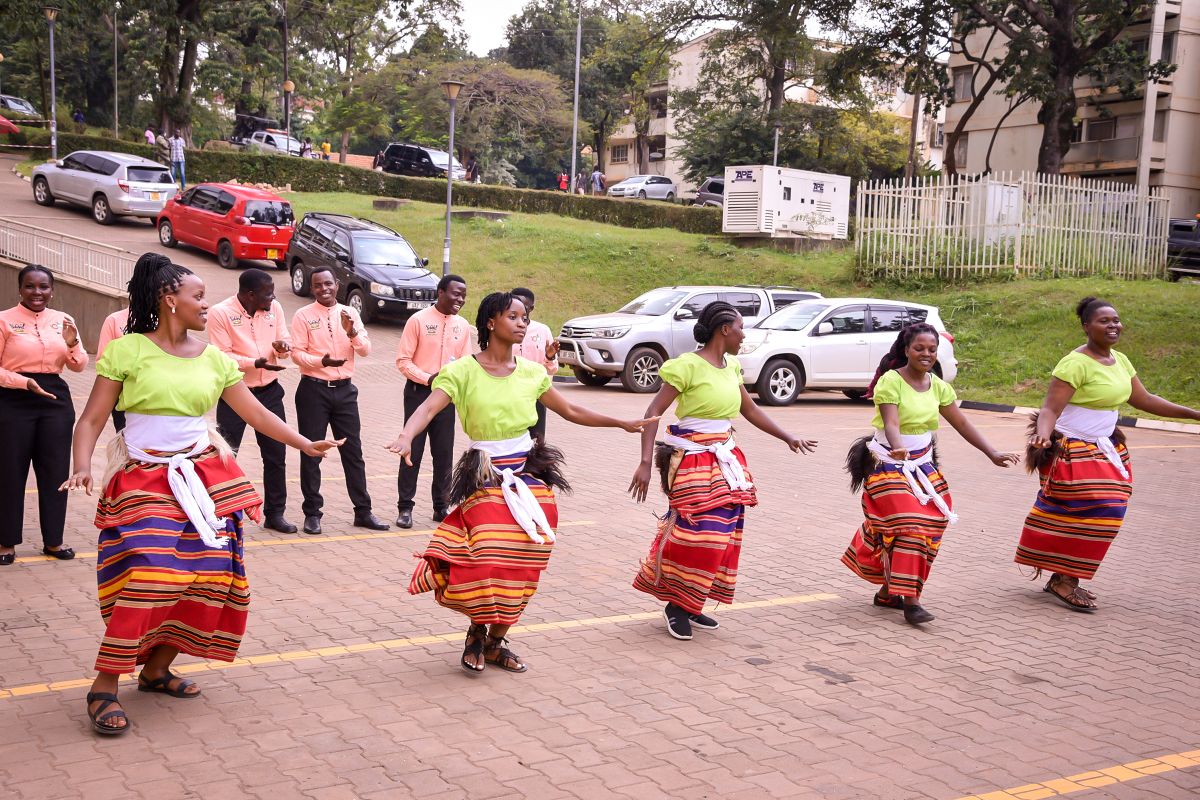On 4th September 2019, the Secretary General of the African Research Universities Alliance (ARUA) Prof. Ernest Aryeetey launched the Centre of Excellence in Notions of Identity at Makerere University-a multi disciplinary collaborative effort involving six (6) research intensive universities in Africa.
The colorful ceremony was attended by Deputy Vice Chancellors in charge of research and academics from the member states of ARUA, researchers, management, staff and students of Makerere University, other invited dignitaries and media.
The ARUA Centre of Excellence in Notions of Identity is one of the 14 Centres of Excellences established around the world. Hosted by Makerere University, the Centre of Excellence in Notions of Identity seeks to establish, expand and deepen scholarship around the notion of identity in Africa and how it manifests, shapes and impacts on contemporary African society.

According to the Director of the Centre, Associate Professor Sarah Ssali who also doubles as the Dean School of Women and Gender Studies at Makerere University, the Centre of Excellence in Notions of Identity brings together six (6) universities dedicated to deepening scholarships and harnessing research on identities in Africa. The Universities include; Makerere University the host (Uganda), University of Ghana (Ghana) Obafemi Awolowo University (Nigeria), University of Addis Ababa (Ethiopia), University of Witwatersrand (South Africa) and University of Rwanda (Rwanda). In addition, the Centre will collaborate with eight (8) Universities in United Kingdom (UK).
“Our research will focus on knowledge production, influencing factors shaping identities, medium communicating identifies, advocacy collaborations among other areas,’ she said.
The objectives of the Centre are:
- Develop a network of African institutions and researchers engaging with the question of identity
- Share knowledge, skills and other resources between the network partners in the CoE
- Develop a research agenda in the area of Identities in Africa between network partners
- To develop an intellectual community to engage with the notion of identity in each partner university
- Build capacity to research identities in Africa in the partner universities
Speaking at the launch, the Prof Ernest Aryeetey emphasized the need for African scholars to focus on excavating African richness and beauty through African research. He appealed to ARUA member Universities to embrace new ideas and relate the notions of African identities to the different sectors of development.

“We want to understand ourselves and where we are coming from. We need to improve research across all sectors of development without neglecting the African research on the thematic areas of Climate change, Food security, Non-communicable diseases, Mobility & migration, Poverty & inequality, Unemployment & skills development, Notions of identity, Good governance, Post-conflict societies and Water conservation,” he said.
Prof. Aryeetey congratulated Makerere University upon winning the rights to host the Centre. He also applauded Makerere University Management, faculty and students for undertaking research that has developed solutions to community problems.
He urged collaborating Universities to visualize the African Research Universities Alliance as a Pan-African network that brings research and academic excellence to the fore front throughout the region by developing strong and viable research universities.
The Vice Chancellor, Prof. Barnabas Nawangwe welcomed the Secretary General and the Deputy Vice Chancellors in charge of research and academics from the member states of ARUA to Makerere University. Prof. Nawangwe expressed Makerere University’s commitment to work with other partners in Africa to significantly contribute to global research development.

“At Makerere University, we fully subscribe to the vison and mission of ARUA and we want to play our part in ensuring that Africa truly joins the global knowledge community,” he said.
He acknowledged the team under the leadership of Associate Prof. Sarah Ssali that worked tirelessly on the proposal to have the Centre hosted at Makerere University. In the same spirit, Prof. Nawangwe thanked the judges for finding Makerere University proposal worthy supporting. He also thanked ARUA Vice Chancellors for endorsing the recommendation for Makerere University to host the Centre.
“My sincere gratitude also goes to the Secretary General, who has continuously encouraged us and provided valuable guidance. We became active in ARUA, after the 13 Centres of Excellence had been allocated to other universities and the Centre of Excellence in Notions of Identity was the one hanging. I said what an opportunity! We quickly applied for the opportunity to host the center,” he narrated.
During the ceremony, the congregation listened to an informative and inspirational keynote address on Unpacking Identities in Uber-Colonial Africa. The Keynote Speaker, Prof. J. Oloka-Onyango highlighted the objectives of the ARUA Centre of Excellence in Notions of Identity premised on a question; What kind of political framework is most viable for the full expression of our varied African identities?

According to Prof. Oloka-Onyango, ARUA scholars should avoid the notion of a single story during their research. He urged them to embark on exploration of the multiple positive stories of identity that abound on the continent, while also examining and critiquing the more problematic and disempowering ones.
“We must avoid the “single story,” the result of which “robs people of dignity. It makes our recognition of our equal humanity difficult. It emphasizes how we are different rather than how we are similar. Stories have been used to dispossess and to malign, but stories can also be used to empower and to humanize. Stories can break the dignity of a people, but stories can also repair that broken dignity,” said Prof. Oloka-Onyango.
On the issue of Theory, Research and Advocacy Audit, Prof. Oloka-Onyango advised ARUA scholars to develop methodological tools of analysis which suit the African local contexts. He cautioned members, against turning ARUA into a space where theories from elsewhere are imported and given free reign. He encouraged scholars to actively engage in designing and applying home-grown theory.

He appreciated the move for ARUA to embrace feminism without ifs or buts when he said, “Indeed, I would add that it is long overdue for an unapologetic embrace of the basic tenets of feminist principles in the African Academy. ARUA’s focus on Afro-feminism must point out that the situation of women is the result of several factors, the first of which is the multiple inequalities they face. The second are the structural factors embedded in the kind of political and economic systems in operation.”
The keynote address was further enriched by a panel discussion that was moderated by Mr. Yusuf Kiranda, the Acting Makerere University Secretary. The discussants included;
- Associate Prof. Rhoda Wanyenze- Dean, School of Public Health
- Dr Paul Omach-Head, Department of Political Science and Public Administration
- Associate Prof. Josephine Ahikire- Acting Principal, College of Humanities and Social Sciences
The African Research Universities Alliance (ARUA)
The African Research Universities Alliance (ARUA) is a network of universities from different countries and different historical backgrounds, but with a common vision of expanding and enhancing significantly the quality of research done in Africa. Inaugurated in Dakar in March 2015, ARUA brings together sixteen (16) of the region’s leading universities with the aim of strengthening African research through effective capacity-building. Its intention reflects what Africa needs at the moment from its leading universities.

The ARUA is focusing on;
- Increasing significantly the amount of research that is being done in the 16 universities
- Expanding the graduate training activities in the 16 universities
- Research management on the African continent
- Africa’s Research advocacy
Mak Hosts Deputy VCs and Pro-VCs (Research) under the African Research Universities Alliance (ARUA)
The Deputy Vice Chancellor (Academic Affairs), Dr. Umar Kakumba, hosted the distinguished Deputy Vice Chancellors in charge of research and academics, Pro-Vice Chancellors, and Directors from reputable research intensive African Universities. The two (4th -5th September 2019) days’ workshop undertaken by the Partnership for Pedagogical Leadership in Africa (PedaL) aimed at engaging the participants into a discussion on research, research funding, collaborations, setting up ARUA Centres of Excellence, and the ARUA Split-Site PhD programmes.

The participating Universities included; University of Ibadan, University of Pretoria, Stellenbosch University, Rhodes University, University of Kwazulu-Natal, University of Lagos, University of Nairobi, University of Dar Es Salaam, and Makerere University.
PedaL is a formal partnership of eight institutions that aims at embedding and catalyzing systemic change in teaching and learning practices and to maximize learning outcomes through strategic interventions in graduate social science programmes.
Guests were entertained by the Department of Performing Arts and Film.
Related article:
https://news.mak.ac.ug/2018/05/secretary-general-arua-meets-mak-top-management-need-expand-and-enhance-africas-research
Article by: Mak Public Relations Office
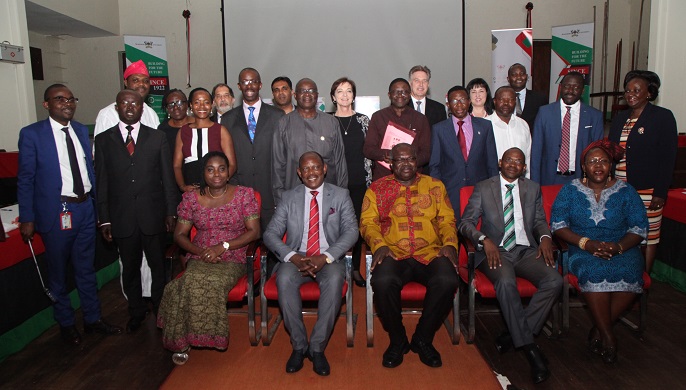

 Education2 days ago
Education2 days ago
 General1 week ago
General1 week ago
 General2 weeks ago
General2 weeks ago
 General5 days ago
General5 days ago
 General2 weeks ago
General2 weeks ago







